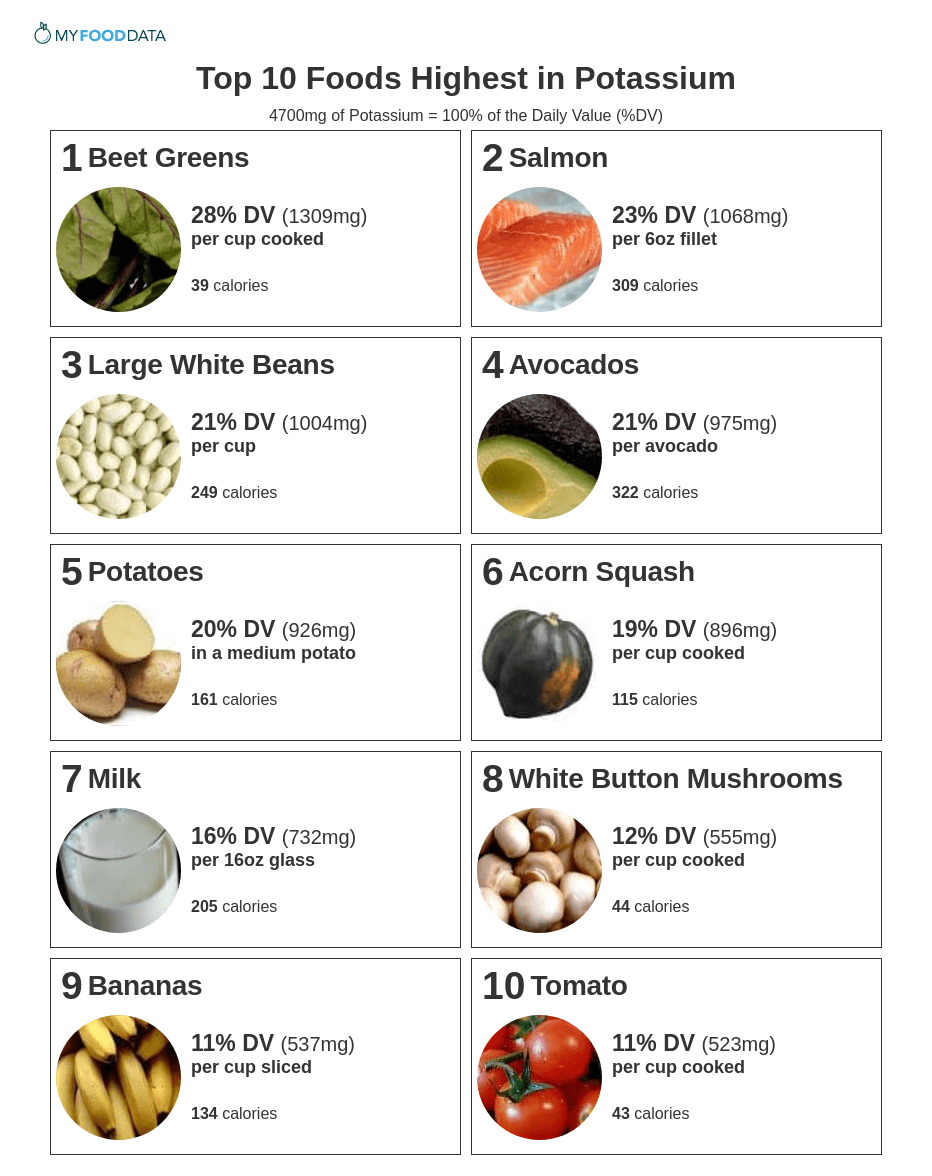
High Potassium And Calcium. High concentrations of potassium given rapidly may cause cardiac arrest. Conversely deficiency of calcium ions causes cardiac flaccidity similar to the effect of high potassium. An increased intake of minerals such as potassium magnesium and calcium by dietary means has been shown in some but not all studies to reduce blood pressure in patients with hypertension. Chronic medical conditions can cause abnormal levels in potassium calcium and sodium but if you exercise on a frequent basis you may be susceptible to the effects of electrolyte imbalance as well.

Since potassium controls nerve impulse transmission and muscle contractions high potassium levels play a role in abnormal heart rhythm. People with very high blood potassium levels may also need dialysis which uses a special machine to filter the potassium from your blood. Therefore cardiac effects of abnormal calcium concentrations are seldom of clinical concern. Elevated potassium and calcium levels both have risks. Although your body absorbs about 30 percent of the calcium from the foods and beverages you consume the amount can vary. Eating a balanced diet full of fresh produce lean protein healthy fats and complex carbs will give you all the nutrients you need to keep your body in balance.
You can find a list of foods high in magnesium here or high in potassium here.
Conversely deficiency of calcium ions causes cardiac flaccidity similar to the effect of high potassium. Chronic medical conditions can cause abnormal levels in potassium calcium and sodium but if you exercise on a frequent basis you may be susceptible to the effects of electrolyte imbalance as well. Most processed foods contain ridiculously high levels of salt. Therefore cardiac effects of abnormal calcium concentrations are seldom of clinical concern. Since potassium controls nerve impulse transmission and muscle contractions high potassium levels play a role in abnormal heart rhythm. A potassium level higher than 5 5 mmol l is critically high and a potassium level over 6 mmol l can be life threatening.